We’ve been saying it forever: The Golf SportWagen is a brilliant car. It’s not flashy like its GTI siblings, but it’s a lot more practical. It’s not as trendy as a crossover like the Tiguan, but it offers nearly as much all-purpose utility (and available all-wheel drive) with the benefits of a car.
Yes, the benefits of a car. They’re myriad.
But it’s like shouting into a void, because the higher seating position and image of the crossover have really driven a knife into the heart of the car market. And the SportWagen is a casualty – it’s dead. (So too is the similar Alltrack.) After driving one for a week – a front-wheel drive, 1.4-liter, turbocharged wagon with a manual transmission – I’m not mad, I’m just disappointed.
This disappointment has been a long time coming. The SportWagen’s most brilliant iteration was the TDI diesel engine, now engine non grata, which was fun and frugal in equal measure due to some audacious and despicable cheating by the company. Paired with a manual, it inspired a devoted (and subsequently jilted) following. The perky turbodiesel was a niche offering, but it elevated the entire Golf lineup, and its fuel-sipping ways meshed perfectly with the wagon’s extra utility. Of course it was too good to be true.
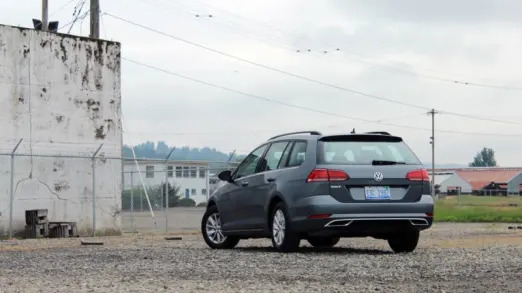
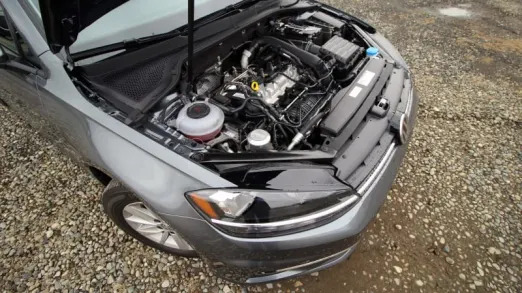
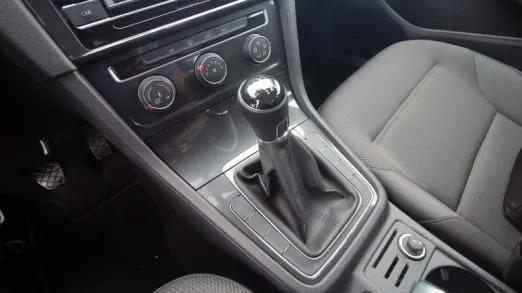
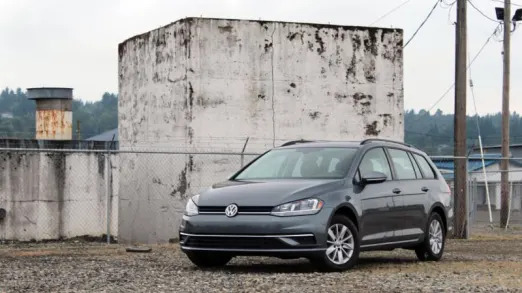
Since then, the gas versions soldiered on. For 2019, the SportWagen received a new engine option for its front-wheel drive models, the gas-powered 1.4-liter turbocharged inline-four – the same engine that’s used in the new Jetta – paired with either a six-speed manual or an eight-speed automatic. All-wheel drive models continue with the more powerful carryover 1.8-liter engine. Sampling the new engine at virtually the same time as the company announced the body style’s demise is bittersweet.
Not that the 1.4T is a particularly inspired engine. It’s gutless before it builds boost, and not in a fun way. There are cars you have to hustle from stoplight to stoplight, but the 1.4T seems annoyed by all of your requests to move. “Let me rest!” it whines, “I need a break.” Once you have the engine’s attention by flogging the throttle enough to build some boost, the SportWagen moves smartly, but with a cacophony of whines and whistles and clatters from underhood. There’s enough zoom for authoritative merging and passing, with a downshift at the appropriate time, and when simply cruising the 1.4T provides startling economy. The EPA says it’ll return 37 mpg on the freeway, and I got within a mpg or two consistently.
The manual’s throws are long and the ropey action is typical cable-linkage stuff, but it’s one of those manual boxes that requires virtually no brainpower to use. Slap it around and go. That and a light clutch make city traffic a breeze, but the aforementioned initial gutlessness means some revs are needed to start on an incline.
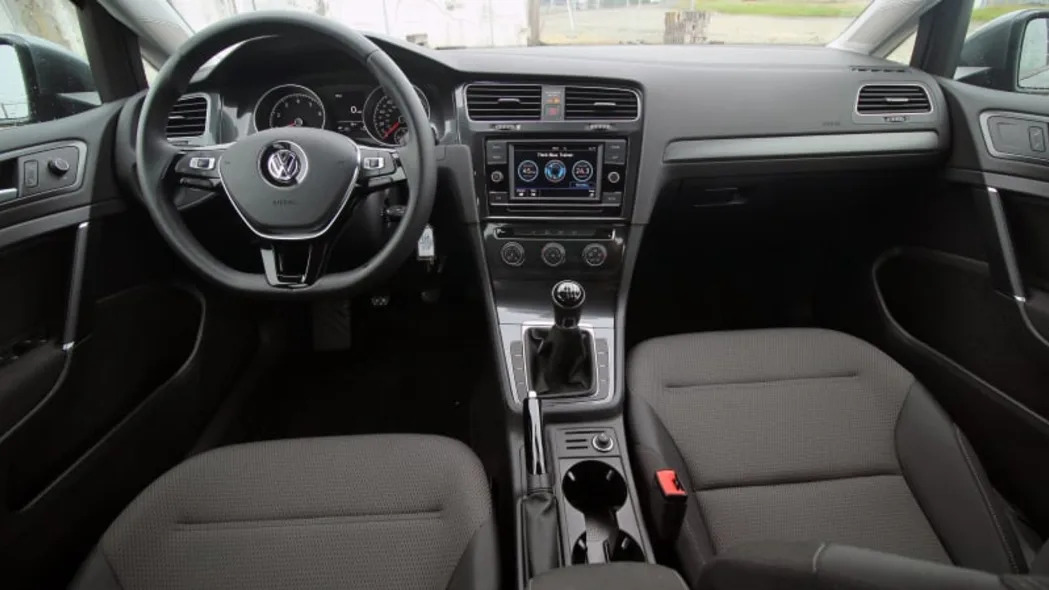
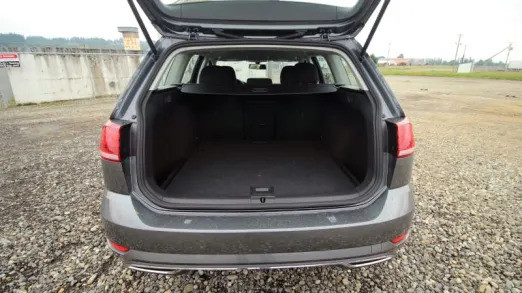
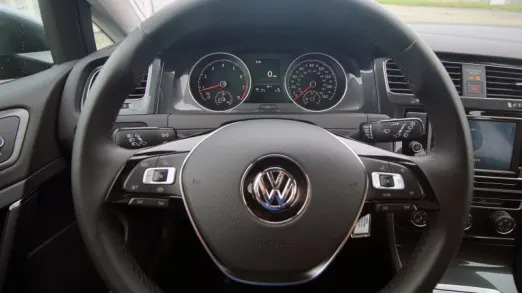
Where the SportWagen has always shined is in its versatile, comfortable, purposeful interior. Materials are functional but not cheap, fabrics are durable if not luxurious. The SportWagen, like all Golfs, doesn’t punish you for choosing a low-spec interior. The rear seat swallows a large car seat without a problem, the vast cargo area gobbles huge strollers and shopping bags without blinking. We only have one kid, but I can imagine that the Sportwagen could accommodate an active family of four with all of their stuff for any typical outing. A weekend ski trip? Sure, you won’t need a top box. And you’ll be comfortable on the way up to the lodge in a way that not all crossovers can guarantee.
The death of the SportWagen will push buyers interested in practical hauling into the less inspired Tiguan or the much less utilitarian Jetta (which, to be fair, offers a manual). The Golf hatchback gives up nearly 8 cubic feet of stowage (22.8 versus the wagon’s impressive 30.4 cubes). Compare this to the Tiguan, which has 12 cubes behind the third row and 33 with it folded. The Tiguan is also, unsurprisingly, much less miserly at the pump. It’ll only manage 29 mpg on the highway, according to the EPA.
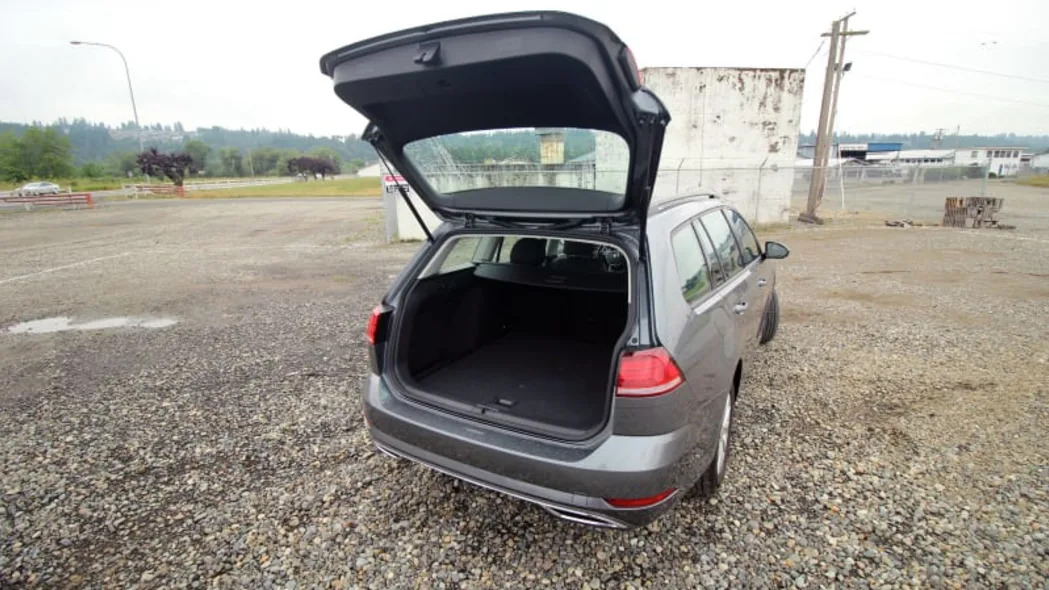
If you read between the lines there, what we’re losing is this virtually ideal middle ground – an ultra-efficient, super-practical choice for smaller families or folks with a bunch of stuff to haul around – that isn’t a punishment to drive. The SportWagen is one of the last vehicles on offer here that has such an objectively appealing mix of attributes. What it lacks is appeal.
Consumers have abandoned the wagon. That’s their prerogative, to be sure. But that’s left some white space that none of the other choices are able to fill. Crossovers aren’t as efficient, and sedans aren’t as useful. And for the SportWagen in particular, I’d argue that the TDI was the special sauce that made the whole thing work. The engine was too good to be true, and without it the remaining options simply don’t make the SportWagen as special as it should be. Removing some of its unique allure, and tinging the whole lineup with scandal, didn’t do the SportWagen any favors.
I think, however, it’s going to be a short mourning period. Volkswagen’s staked much on the innovative, space-efficient MEB electric platform. At the moment, none of the ID concepts resemble the SportWagen, but if the ID hatchback can be thought of as an electric Golf, then perhaps the ID family will expand to include most of the Golf’s current variants. The MEB’s “skatebord” chassis has the potential to make all of its variants, even a crossover, more smartly packaged and utilitarian than even the SportWagen.
I don’t know if the SportWagen in its familiar form will return, but for Volkswagen’s sake I hope one of the MEB vehicles fulfills its role. Until then, if you’re looking at Volkswagens but the usual suspects aren’t inspiring you, take a SportWagen out for a spin. You won’t know it’s for you unless you try it.
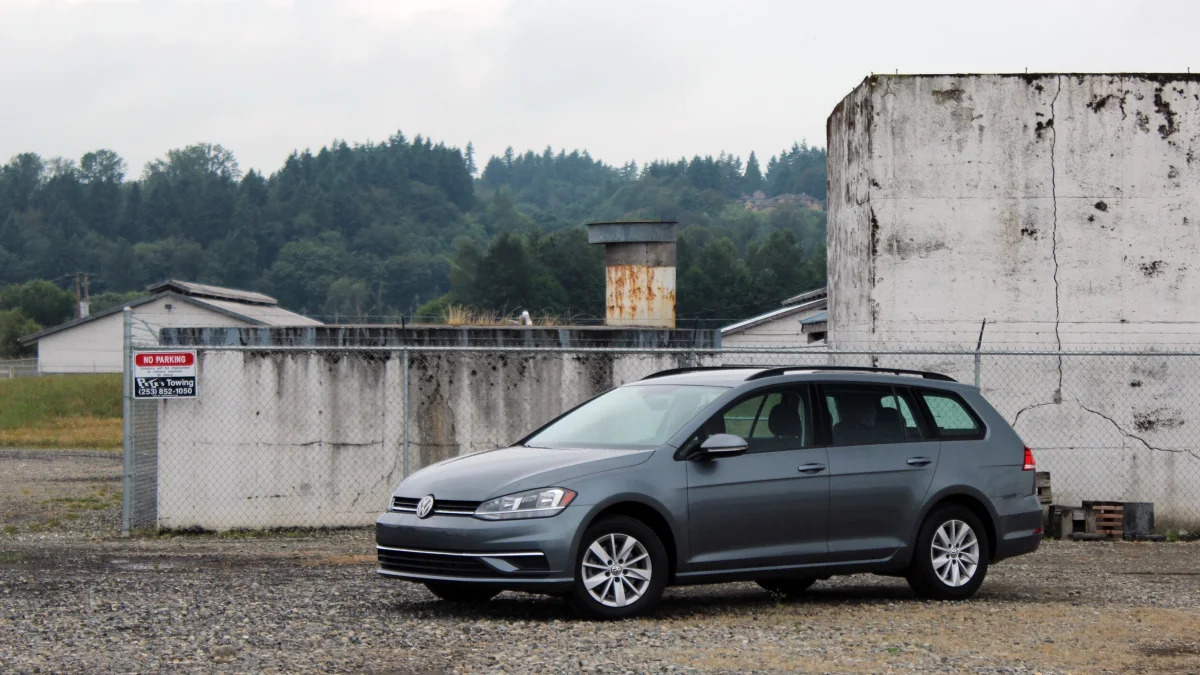









Sign in to post
Please sign in to leave a comment.
Continue